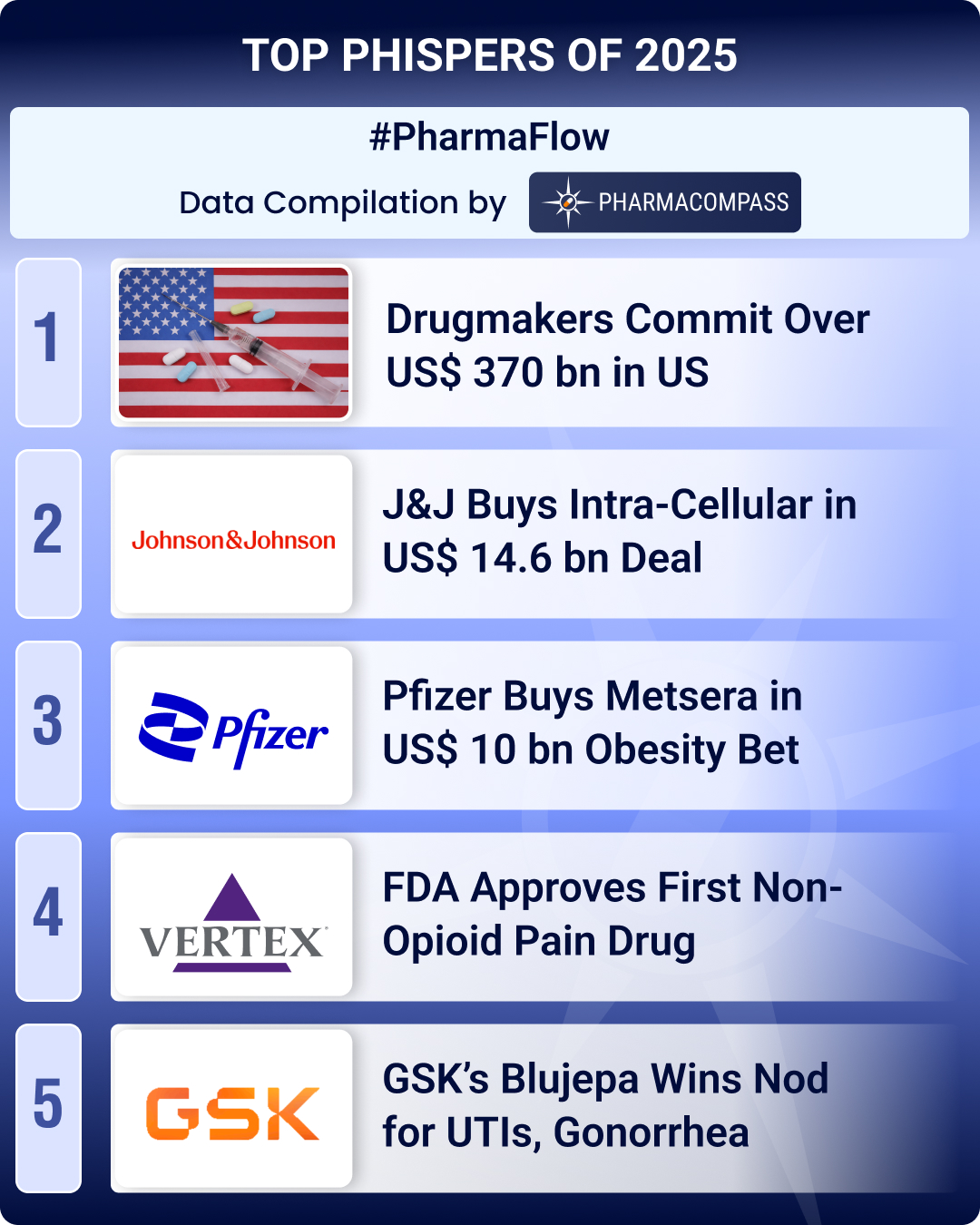Overview of parenteral & injectable pre-filled syringe (PFS) dosage forms & corresponding contract manufacturing services offered by CMOs & CDMOs.
Q1. What are sterile injectable formulations and what are the different types?
Injectable formulations are sterile preparations containing one or more active ingredients intended for administration by injection, infusion or implantation into the body. They are packaged in either single-dose or multidose containers.
Injectable preparations may be formulated as sterile solutions or suspensions of drugs in aqueous or oily vehicles meant for introduction into the body by means of an injectable needle under or through one or more layers of the skin or mucous.
Each year, an increasing number of new molecular entities are characterized as having poor water solubility. For parenteral formulations, it is exceptionally important that solubility limitations are well understood so that the desired therapeutic activity can be achieved.
Sterile injectable formulations of lipophilic water-insoluble drugs frequently consist of mixtures of water, organic cosolvents and surfactants. Furthermore, injectable drug products are relatively specialized and diverse, depending on both the location and type of disease being treated.
Types of Injectable & Parenteral Preparations based on volume:
- Small Volume Parenterals
Small volume parenterals are sterile pyrogen free preparations intended to be delivered via a parenteral drug delivery route, supplied in single or multiple doses. Its volume is generally less than or equal to 100 ml and often ranges from 1-30 ml.
Small volume parenteral products are often presented in vials or ready-to-use pre-filled syringes, providing ease-of-use in the clinical research setting and for patient self-administration.
- Large Volume Parenterals
Sterile preparations containing active ingredients mostly supplied in single doses of more than 100 ml are referred to as large volume parenterals. Large volume parenterals are delivered through the intravenous route of administration. They generally provide electrolytes and nutrition to the body.
Types of injectables based on dosage forms:
- Injectable Solutions
Pharmaceutical solutions are defined as liquid preparations in which active ingredients and various excipients are dissolved in a given solvent. Non sterile solutions are extensively used as dosage forms for oral administration, while sterile solutions facilitate parenteral drug delivery.
- Injectable Suspensions
Pharmaceutical suspensions are heterogeneous systems consisting of two phases in which the internal phase (suspended particles) is dispersed uniformly throughout the external phase (suspension vehicle). Based on the route of administration, suspensions can be classified into oral suspensions, externally applied suspensions, and parenteral suspensions.
- Injectable Emulsions
Emulsions are heterogeneous and biphasic, thermodynamically unstable systems consisting of two immiscible fluids (for e.g. fat and water) stabilized by an emulsifying agent. Emulsion pharmaceutical formulations are not popular for oral ingestion, however, they are increasingly used in the preparation of parenterals such as complex injectable pharmaceutical formulations & topical dosage forms such as ointments, creams, lotions, etc.
Advantages of Injectable Dose Formulations:
- Improved patient convenience and compliance
- Prolonged steady state drug plasma concentration
- Maximum utilization of drug
- Dosage uniformity
- Ease of formulation
Q2. What are pre-filled syringes (PFS) and what are the advantages?
A pre-filled syringe is defined as a disposable syringe that is already loaded with a therapeutic substance meant to be injected into the body. Alternatively, a pre-filled syringe is a single dose of medication to which a needle has been fixed by manufacturers.
As the pharmaceutical industry continues to seek out drug delivery methods that improve safety and efficiency while reducing costs, the traditional multi dose or single-dose vial format for vaccines and complex sterile injectables is starting to show its age.
The use of prefilled syringes (PFS) is a modern way to administer parenteral drugs. With achievements in science and technology in the past twenty years an increasing number of complex sterile injectables utilize prefilled syringes.
The use of prefilled syringe manufacturing has risen because of the disadvantages in the traditional processes. Prefilled syringes (PFS) are now used across a wide array of therapeutics sectors outside of the traditional domains of anticoagulants and vaccines. And, the use of prefilled syringes is expected to accelerate over the coming decades.
The prefilled syringe market is driven by the rapid growth in innovative and targeted molecular entities such as monoclonal antibodies (mAbs), interferons, peptides, vaccines, and ophthalmics, for which prefilled syringes are a suitable drug-delivery system. Additionally, the rising levels of chronic diseases and cancers have led to a significant increase in the use of injectable drugs.
In the past, metal or glass syringes were popular, but increasingly there has been a movement towards plastic and disposable syringes so the needle is protected and cannot be reused (prefilled disposable systems). Furthermore, the future of prefilled syringe manufacturing and usage - worldwide - is projected to increase with the movement towards more potent dosage forms and home use products.
For the pharmaceutical industry, the advantages and primary driving factors behind the growth of prefilled syringes (PFS) are:
Minimizing drug waste
- Elimination of vial overfill-finish for products transferred to syringes for direct injection
- Lower costs - less preparation, fewer, materials, easy storage and disposal
- Removal of preservatives (i.e. thimerosal) from vaccine pharmaceutical formulations
- Less wastage (as compared to traditional vials) especially if vaccines are in short supply or are really costly
- One-use, prefilled syringes reduce the risk of drug contamination.
Increasing product life span
- Increased sterility
- Administration of controlled drugs (e.g. narcotics)
Enhancing level of market share
- Product differentiation
- Prefilled syringes can increase the attractiveness of a product to out-licensing partners and improve clinical research trial validity and appeal.
- Pre-filled syringes work well with increasingly popular safety devices and auto-injection systems—making the injections easy, safe, and convenient- and attractive to consumers.
Q3. What are the different steps involved in GMP manufacturing and filling processes for pre-filled syringes?
General steps involved in GMP manufacturing of sterile injectable pre-filled syringes:
I. Pre-formulation and device pharmaceutical manufacturing & assembly
The first step of parenteral contract manufacturing for pre-filled syringe injectable dosage forms is performing extensive pre formulation studies for identifying physical attributes (pH stability, thermal stability, etc.) of potential injectable drug solutions, suspensions or emulsions. Subsequently, a suitable drug candidate and compatible excipients are chosen to constitute the final injectable dose formulation.
The initial stages of pre-filled syringe manufacturing also involves device preparation and assembly. At this stage container materials are selected, dosing specifications are considered, and the different parts of the injectable syringes are manufactured and put together.
II. Process Compatibility
The next step includes learning how the formulation (injectable solution, suspension, or emulsion) behaves/interacts in an aseptic pharmaceutical manufacturing facility, for contract manufacturing of injectables, when it comes into contact with the selected prefilled syringe material. Process optimization is achieved after analyzing the results of such studies.
III. Compounding/Mixing
The chosen raw materials, selected during the pre formulation stage, then undergo the process of combining, mixing, or altering ingredients to create a medication tailored to the needs of the patient.
IV. Filtration
Filtration through a membrane and/or filtering processes using compressed gas and air are used to remove unwanted materials from the formulated bulk solutions, suspensions or emulsions.
V. Filling Process
Once the product has been filtered into a sterile filling container and the filter passes the post fill-finish integrity test, it is now ready to fill-finish into its primary container, the syringe. Traditional pre-filled syringe filling processes include filling the syringe with solution, suspension, or emulsion injectable dose formulations, and then closing and sterilizing the pre-filled syringes. Newer versions of pre-filled syringe filling include bubble-free vacuum filling coupled with vacuum stoppering.
VI. Sterilization
Parenteral products must undergo some form of sterilization prior to administration. Sterilization of prefilled syringes is mainly done by autoclaving or by ionizing radiation.
- Autoclave is not suitable for glass prefilled syringes and normal plastics, as there is a pH shift in glass syringes during the autoclave sterilization process.
- The main method of sterilization is ionizing radiations. Gamma sterilization has proved to be an efficient means of sterilizing prefilled syringes. Ionizing radiation has the advantage of sterilizing the syringe plungers while they remain in their packaging.
VII. Lyophilization
Parenteral contract manufacturing or contract manufacturing of injectables or lyophilized injections is achieved via lyophilization. Lyophilization is the removal of water from frozen to gaseous state without going into the liquid state. In lyophilization of pre-filled injectable dosage forms, the drug or sterile powder is dissolved in an appropriate solvent and converted to ice at a very low temperature between -50 °C and -90 °C.
VIII. Closing/Stopping
Pre-sterilized stoppers and caps are then used to seal the pre-filled syringes filled with lyophilized sterile injectable formulations or lyophilized products.
IX. Inspection
After the product is released following QA & QC testing, inspections of the physical attributes of the drug products and prefilled syringe containers are performed prior to labeling.
X. Labeling
The pre-filled syringes are labelled clearly after packaging is complete. Sophisticated label solutions can play an important role in supporting product and patient safety. Labels serve to clearly and reliably mark the pharmaceutical product by providing information on the product, its administration, batch number, expiration date, etc.
XI. Packaging
Secondary packaging is then carried out to prepare the formulations for large-scale distribution and commercialization.
Q4. Which are the leading pharma CMOs and contract manufacturers offering pre-filled syringes (PFS)?
The leading pharma contract manufacturers (CMOs) offering sterile powder, cartridges, pre-filled syringe manufacturing services and contract manufacturing for injectable formulations include:
Orofino Pharmaceuticals Group
Orofino Pharmaceuticals Group (OPG) consists of a range of companies specialized in third-party pharmaceutical manufacturing services, providing customers high-quality services at a competitive cost. The production essentially aims at the high-quality level of the GMP manufacturing process at competitive prices.
Orofino offers contract manufacturing for injectable formulations. It is also involved in the preparation of pre-filled syringes, vials, and the aseptic filling of solutions and diluents in ampoules. Orofino is a contract manufacturer for pre-filled syringes (PFS) for hormones, beta lactams (corticosteroids), biologicals (vaccines, heparins), and small chemical entities.
Biopharma
Biopharma was founded in 1989 by Orofino and began the construction of its new manufacturing site located at Santa Palomba in Rome, Italy. As a result of a continual investment policy, the site has been kept up-to-date with latest technologies and is now one of the most advanced in Europe.
Biopharma, a leading beta lactams antibiotics pharma CMO and a contract manufacturer for pre-filled syringes (PFS), has global & skilled experience in parenteral contract manufacturing services. The facility, located in Santa Palomba, is approved by the Italian Authority for oral and injectable dosage forms. It offers contract manufacturing for injectable formulations and produces prefilled syringes in segregated buildings. Biopharma also offers prefilled syringes manufacturing for beta lactam products, penicillins and carbapenems.
Injectalia Srl
Injectalia is located in Rome's industrial area of Pomezia and started its activity in 2005. The facility was bought over and revamped by the Orofino Pharmaceuticals Group. Today Injectalia, after some important investments in new technologies, in segregated buildings, mainly manufactures pharmaceutical products under different formulations such as pre-filled syringes for beta lactams. Injectalia is a contract manufacturer for pre-filled syringes (PFS) and also offers contract manufacturing for injectable formulations.
Their new pre-filled syringes line boasts high standards of quality and the possibility of manufacturing syringes with many different cover needle devices to avoid the risk of needle stick injury. The new line guarantees high-quality standards, high performance in terms of production volume capacity and a wide range of products at really competitive costs thanks to the high speed of this line.
Bahrain Pharma
Bahrain Pharma is a contract manufacturer for pre-filled syringes (PFS) focused on improving the lives of people while creating value not only in the pharmaceutical sector but also in nutraceutics. Bahrain Pharma develops, manufactures, markets, and distributes quality branded pharmaceutical and generic products as well as nutraceutical products through its distribution channels.
Bahrain is a contract manufacturer for pre-filled syringes (PFS) offering prefilled syringe filling processes for 2, 3, 5, 10 & 20 ml syringes. Their annual capacity is calculated around 48 million prefilled syringes. They offer contract manufacturing for injectable formulations. Sterile prefilled syringes, sterile powder & cartridges are produced with an aseptic filling machine at a speed of 10,000 units/hour.
All Suppliers







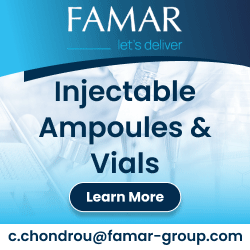

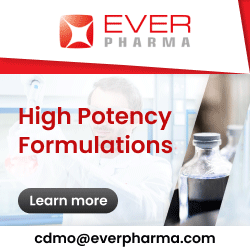
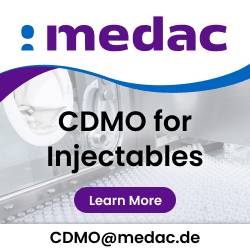
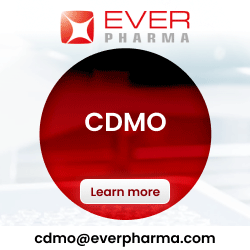




 AbbVie CDMO has been working with global companies to develop, manufacture & scale biopharmaceutical products.
AbbVie CDMO has been working with global companies to develop, manufacture & scale biopharmaceutical products.













